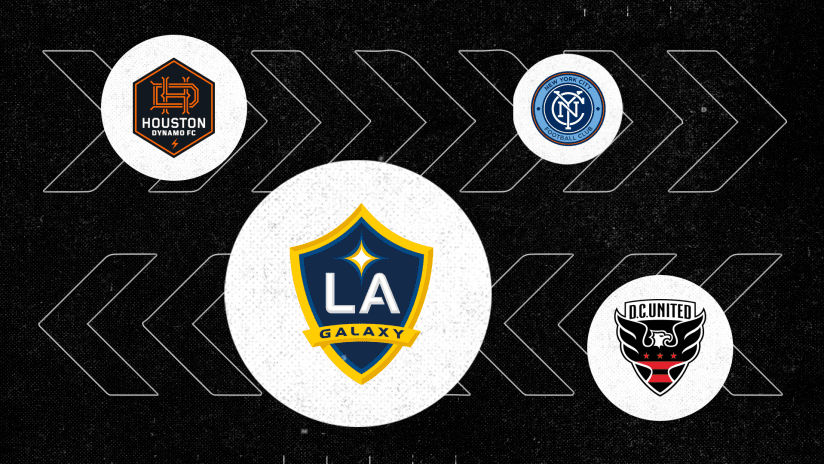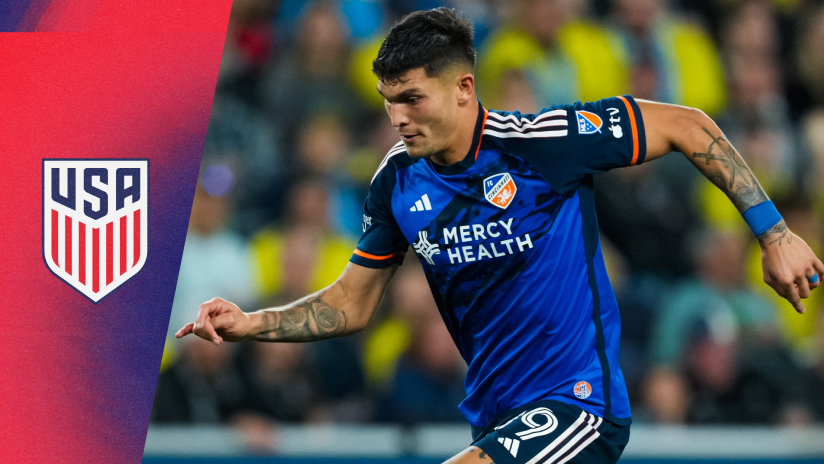After failing to qualify for three of the last four Olympic games, the United States have a point to prove this go around.
As qualifying comes this month, Under-23 head coach Jason Kreis and his squad are in Mexico, looking to right some wrongs from previous cycles. The program is aligned and focused on this goal, with men's head coach Gregg Berhalter in constant conversation with Kreis, allowing the U-23s to call in regular senior squad members for the tournament.
“There are some players [Berhalter] would have selected to go with him in the March window, but instead, he said, 'I think the primary objective is to qualify for the Olympics,'" Kreis told MLSsoccer.com last week before the roster was announced late Sunday evening.
The likes of Reggie Cannon and Jackson Yueill have progressed to regular call-ups with the senior team, but were selected by the U-23s. Other senior-side prospects – those such as Paxton Pomykal, Jesus Ferreira, Djordje Mihailovic, Jonathan Lewis, Jeremy Ebobisse and Brenden Aaronson – were also selected by the U-23s instead of Berhalter's squad for friendlies against Wales and the Netherlands.
The USMNT roster for March's friendlies isn't yet released.
“I see this as a tremendous opportunity, it’s a big deal," Kreis said. "US Soccer are taking it very seriously, I’m taking it very seriously. From the development side of things, it’s huge. It being a big deal might have more to do with the fact that we haven’t qualified for a while, and we feel like we need to be qualifying every time."
Qualifying is a U-23 tournament, while the Olympics allow each roster to include three players above the age limit. The United States missed qualifying for the 2004, 2012 and 2016 tournaments, while they were eliminated in the group stage at the 2008 games in China.
This year's qualifying tournament will be held in Mexico from March 20-April 1. It doesn't fall under an official FIFA international window, thus clubs aren't obliged to release players. Kreis hasn't yet named any specific clubs that declined, though said it wasn't a straightforward process.
“Talking about collaborative efforts, now that we have Brian McBride on board, you’ve got Earnie (Stewart), Brian, Gregg (Berhalter) and myself all talking to clubs at different levels," Kries said. "The communication has been mostly positive. Of course, there’s been a few more declines by the clubs than I would have liked, and that’s frustrating because you’d love to have your best players available, but it’s just another challenge. There’s going to be a lot of challenges in our way in this qualification process and we’ll just handle them one by one.”
The United States were drawn into Group A for the initial stage of the tournament. They'll open March 20 against Costa Rica, before facing the Dominican Republic on March 23 and Mexico on March 26. The top two teams in the group will advance to the semifinals on March 30, with the winners of those games qualifying for Tokyo 2020. Group B of the tournament contains Honduras, Canada, El Salvador and Haiti.
"From a player development point of view, it’s a huge deal," Kreis said. "To have the players come to Mexico in what will be a difficult environment, be under pressure to qualify, then hopefully go to the Olympics in a place far, far away. For weeks at a time, being put under pressure, it’s tremendous for development. It’s a tremendous opportunity for us to put down a very positive flag for US Soccer."













